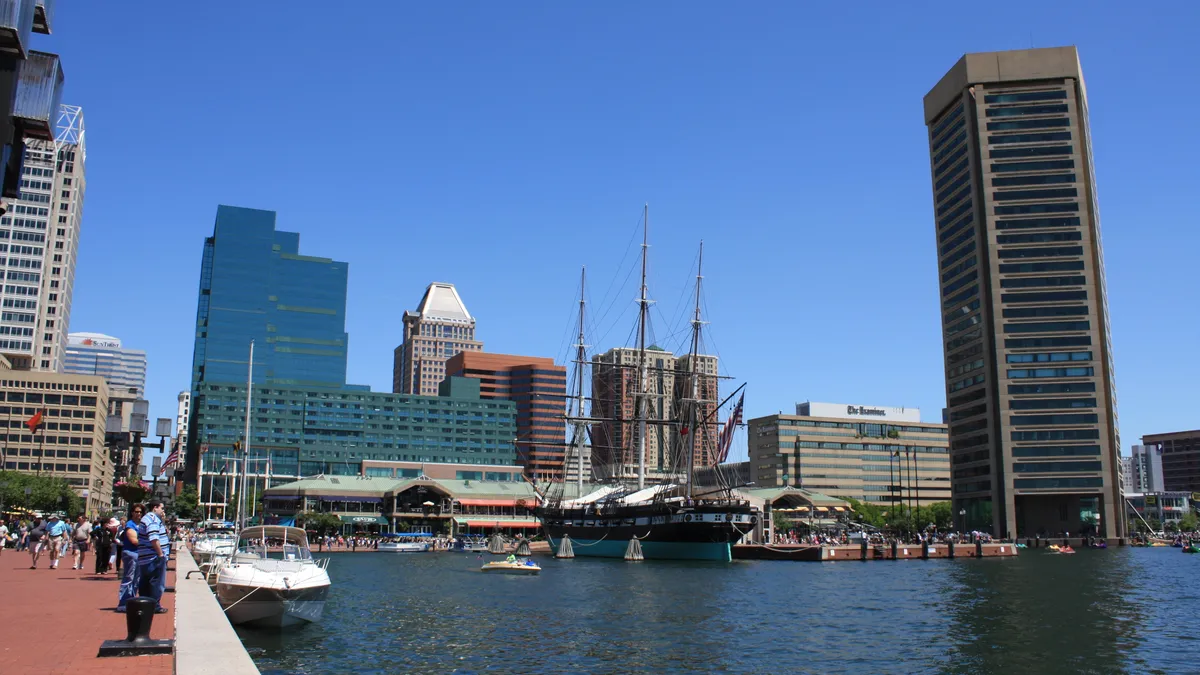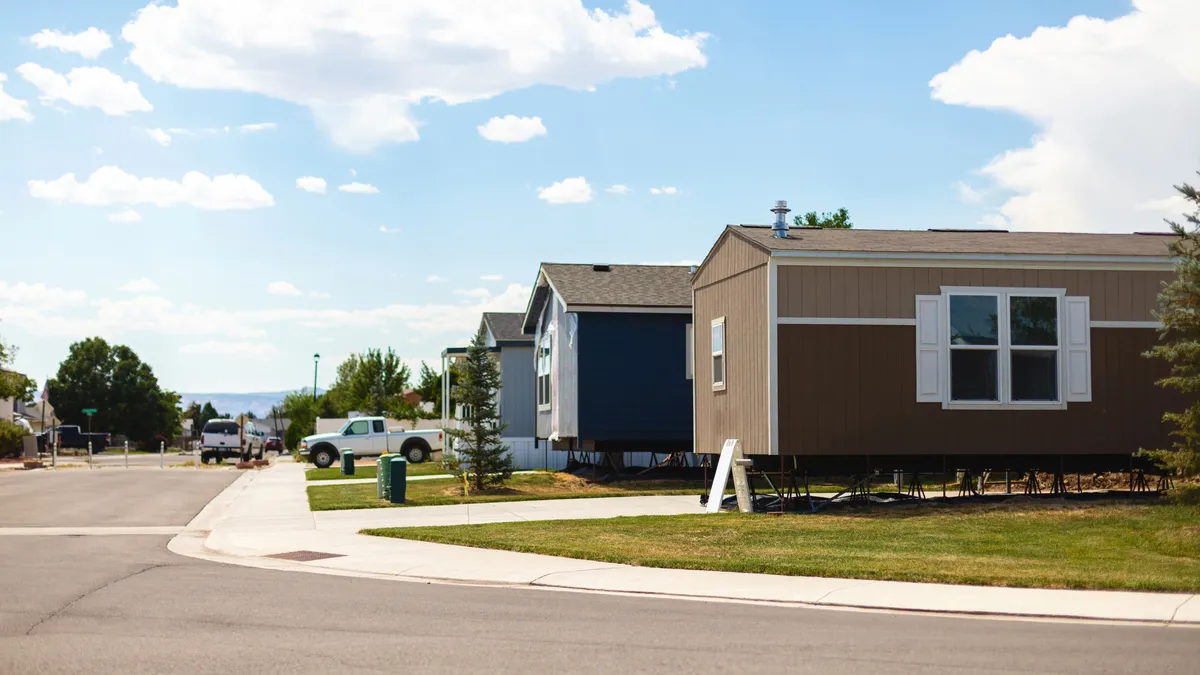Dive Brief:
- Baltimore City Council members and Mayor Catherine Pugh have agreed to fund an affordable housing trust, according to The Baltimore Sun. The city's voters approved creating the trust two years ago but it has not been funded as of yet.
- The city will levy two excise taxes to fund the trust: on the transfer and on the recording of real estate sales in excess of $1 million. The taxes are projected to raise $13 million a year.
- Pugh also has agreed to allocated between $2 million and $7 million each year to the trust, to create an estimated total of $20 million entering the trust annually with the combined allocation and excise tax funds.
Dive Insight:
Baltimore leaders, especially Pugh, had been taking heat for supporting the trust in name only and letting it sit empty for so long after voters approved its creation. But now some in the construction and development industry are criticizing her for funding the trust with a tax that they say will affect real estate investors and developers as well as residents and business tenants renting in buildings affected by the tax. Still, the legislation is expected to pass by year's end and go into effect on January 1.
The details of the trust are still being finalized, but the intent is to to use the funds to prevent residents from being evicted, rehabilitate vacant properties and support community land trusts. The city acted when pressured by activists who were gaining signatures to put an amendment on the November ballot requiring a portion of all city property values to be contributed to the trust.
Baltimore has struggled with housing issues for decades. A large proportion of its residents are considered to have low-income status and don't have the means to purchase homes, which has left the city with thousands of dilapidated and vacant properties considered unfit for habitation. The blight has raised concerns about crime and led to calls for vacant, run-down properties to be razed. More than two years ago, Maryland Gov. Larry Hogan, R, announced a $75 million plan to tear down thousands of buildings — about 20 blocks worth during the first year alone — and push for new developments. At that time, the city had about 16,000 vacant buildings and about 622,000 residents.
Progress on the demolition and revitalization has been slow; as of last summer, only about 1,200 structures had been torn down out of the 4,000 targeted for demolition over four years. Local leaders have been pushing to speed up the process while looking for other solutions to the housing trouble. For example, last fall the city council explored reviving Baltimore's "Dollar House" program, which would allow people to buy city-owned homes for $1 if they have lived in them for a certain amount of time.
Portions of Baltimore are indeed undergoing a revitalization and have startup businesses moving in, but others are having difficulty regaining their lost footing. This affordable housing trust could help to support residents who are struggling to maintain stable housing, which often is a first step toward achieving better employment. Such a phenomenon on a large scale could be an impetus to revitalize some areas of Baltimore that leaders have struggled to effectively help.











